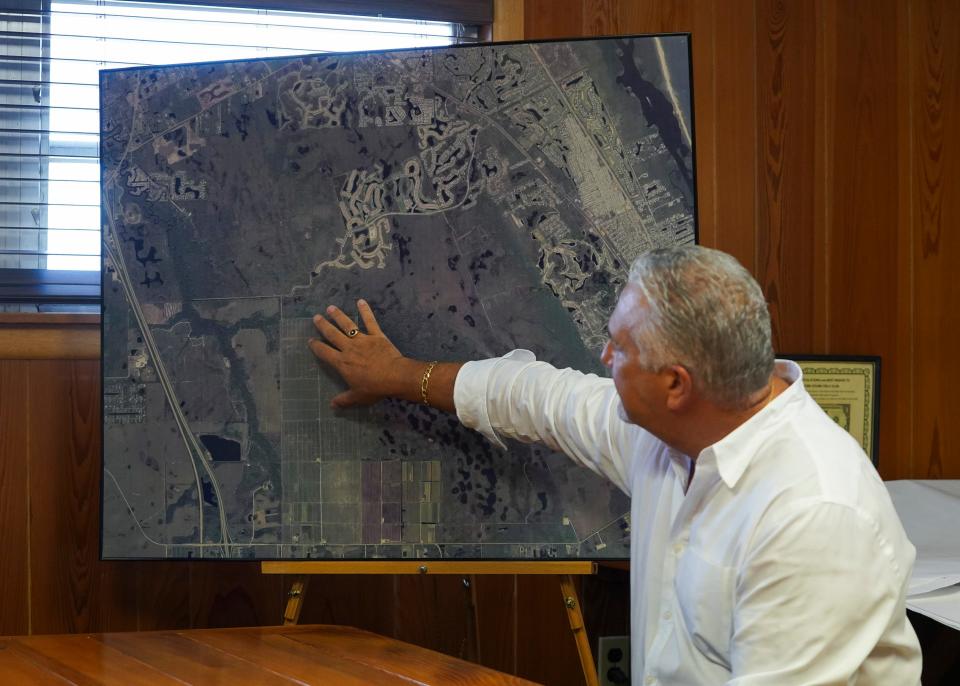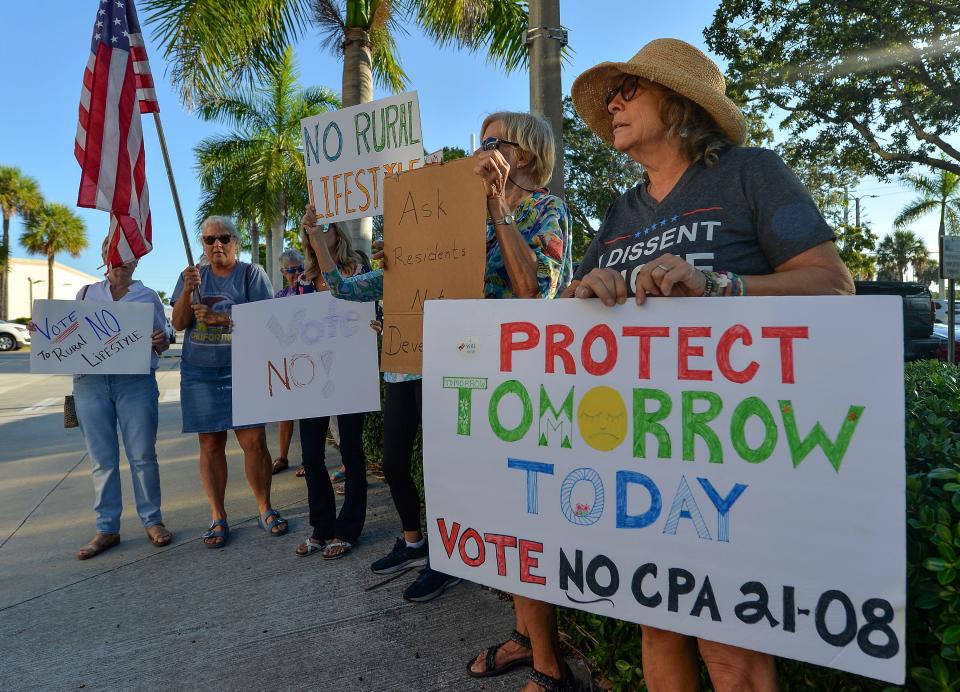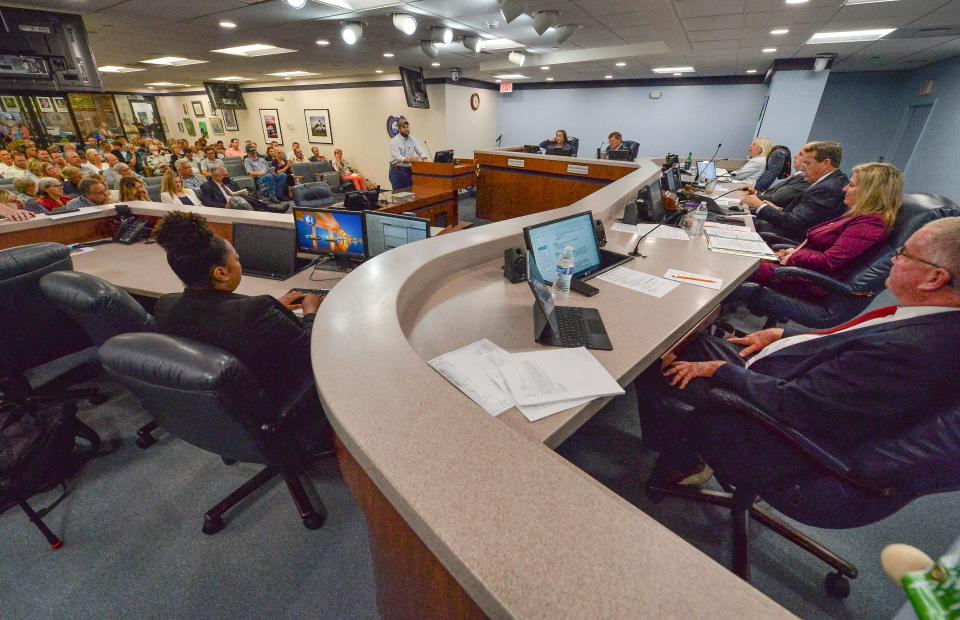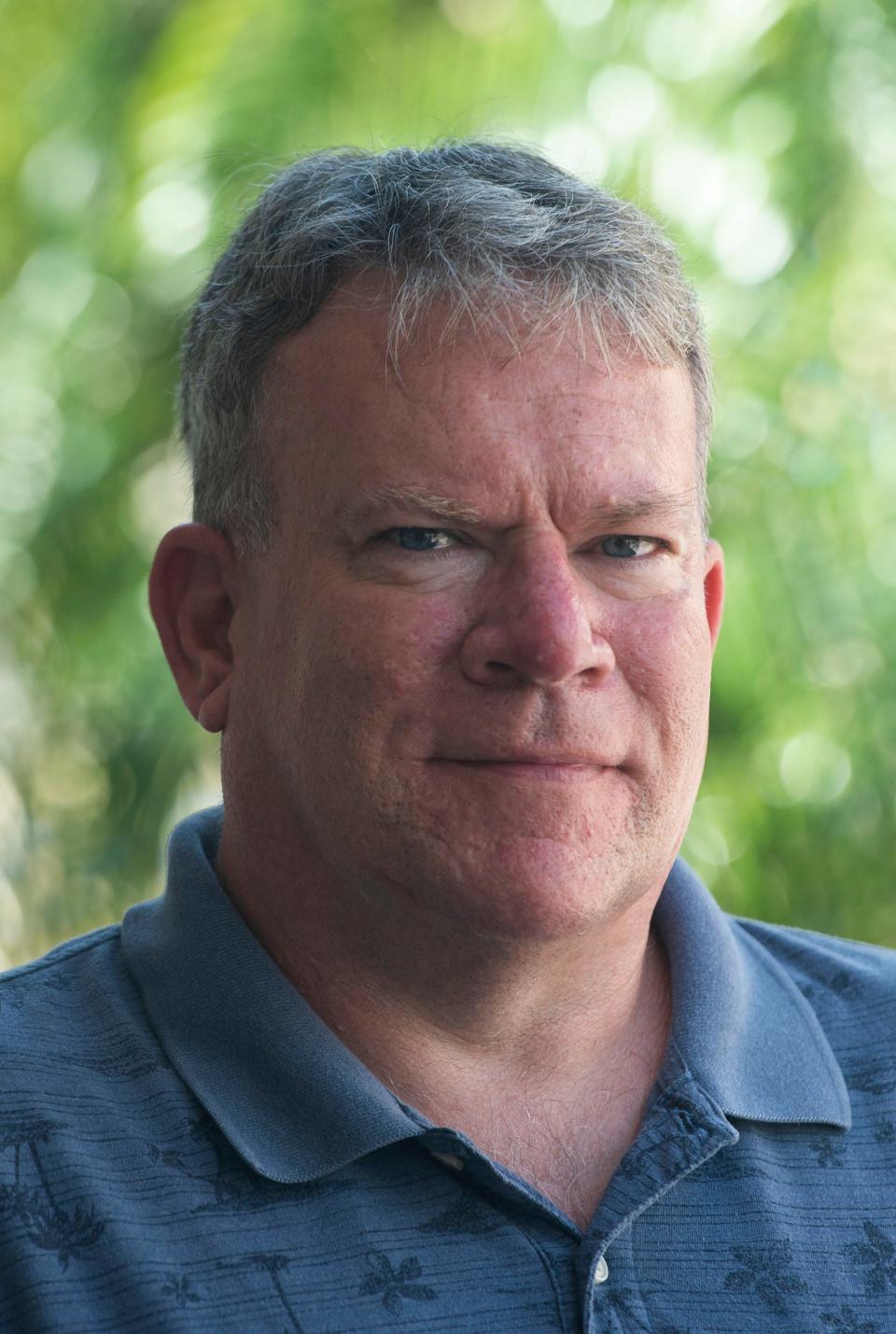Martin County's 'rural lifestyle' case is under appeal. Here are some questions to answer.
- Oops!Something went wrong.Please try again later.
Is ex-football star Tom Brady entitled to a Wawa in his Martin County neighborhood?
That presupposes a couple of things that haven't happened yet, but it's the gist of a legal hearing with broad implications for the future of development along the Treasure Coast.
A Palm City resident's challenge of Martin County's new "rural lifestyle" land use is headed to a hearing before the Florida Cabinet Tuesday. That's when the Administration Commission, made up of the governor and Cabinet members, is scheduled to meet next.
Opinion How to end lawsuit so Tom Brady-backed housing project in Martin County can move forward
Opinion Defeating democracy: Developers can win land-use cases by holding onto the ball
Opinion What's behind push to create new 'rural lifestyle' land use in Martin County?
Opinion Here's a radical concept for cities: Stop growing when you run out of room

The case is on the commission's agenda. And it's likely going to raise some precedent-setting questions.
How those questions are answered in the Martin County case could have bearing on future development in St. Lucie and Indian River counties, too, should they decide to follow the lead of their southern neighbor.
A quick recap: Last September, the Martin County Commission approved an amendment to its comprehensive plan that would, among other things, allow more dense residential development in areas previously reserved for agricultural uses. Donna Melzer challenged that decision and in March Administrative Law Judge Francine Ffolkes agreed that one part of the new land use seemed to conflict with the Martin County comprehensive plan's stated goals.
County officials appealed that ruling, which means the case's next stop is the Administration Commission hearing in Tallahassee.

Brady, along with football star and TV personality Michael Strahan and a host of other rich business people, had quietly lobbied the county to approve development plans for Atlantic Fields, an upscale subdivision poised to be the first development built under the "rural lifestyle" land use.
It might not actually be a Wawa, but the Atlantic Fields plans would include a community store of some sort, which Ffolkes found to be a type of use incompatible with rural areas. Which is as good a place as any to start with the questions.
County officials wouldn't comment on the case while it's pending, but in their legal filings, they've described the community store as a type of incidental use that would be available only to residents and guests within a community, like Atlantic Fields, developed under the rural lifestyle guidelines.

So, how would that provision be enforced? Are we really supposed to believe a bunch of convenience store clerks will be checking the IDs of multimillionaires in Atlantic Fields to make sure all of them actually live in the neighborhood?
And if the store does in fact limit sales only to Atlantic Fields residents and guests, will it be able to generate enough business to stay open? The plans call for only 317 homes. The people who live in those homes would have to buy a lot of beef jerky and warmed-over hot dogs to keep an operation like that commercially viable.
Brady and his hypothetical neighbors might be rich, but would they be willing to pay $30 for a tube of toothpaste or a package of shaving razors to help the community store turn a profit? I don't know from firsthand experience, but I'm told rich people get that way (or at least stay that way) by making smart decisions about how they spend their money.

Those were the easy warm-up questions. Now here's a tougher one: If Martin County wants to define "incidental" uses in its codes this way, will that open the door for other private enterprises in areas previously considered to be limited only to housing?
For example, I live in a condominium complex. If I wanted to set up a coffee stand and sell only to others who live in the complex, wouldn't that be an "incidental" use, too? No? Well, somebody is going to have to explain why, from a land-use perspective, it's OK for Atlantic Fields to have its community store, but it's not OK for me to do that.
The same applies to lots of other potential home-based businesses: tax preparers, marriage counselors, tarot card readers, you name it. All could argue their businesses were merely "incidental" and thus suitable for residential areas.
Melzer will probably be doing more than playing defense when the case is appealed, though. She's also likely to ask the Administration Commission to consider whether other parts of the development, such as the golf course cottages, are inconsistent with what the comprehensive plan says about development in rural areas.
If the golf cottages are only supposed to be used by Atlantic Fields guests and not rented out for commercial purposes, who is going to monitor that?
Two more quick process questions: Will Melzer be forced to pay the opposing side's legal fees if she loses? A new law approved by the Florida Legislature this year will make plaintiffs in cases challenging comprehensive plan changes pay the legal fees for both sides if the challenges are unsuccessful.
It will seem less than fair if Melzer gets stuck paying extra fees since she initiated the lawsuit prior to the law change, but the Administration Commission ultimately gets to make that decision.
Finally, does it seem weird to anyone else the Administration Commission, which is clearly part of the executive branch of government, is in the middle of a legal appeal process that starts with an administrative law judge and would continue with the Fourth District Court of Appeal if either side challenges the commission's ruling? That seems to violate the separation of powers concept (executive-legislative-judicial) we all learned about in social studies classes.
Maybe at the Administration Commission meeting, all of these questions and others will be satisfactorily answered. Or not. We'll see.
This column reflects the opinion of Blake Fontenay. Contact him via email at bfontenay@gannett.com or at 772-232-5424.
This article originally appeared on Treasure Coast Newspapers: What we may learn from appeal of Martin County 'rural lifestyle' case

